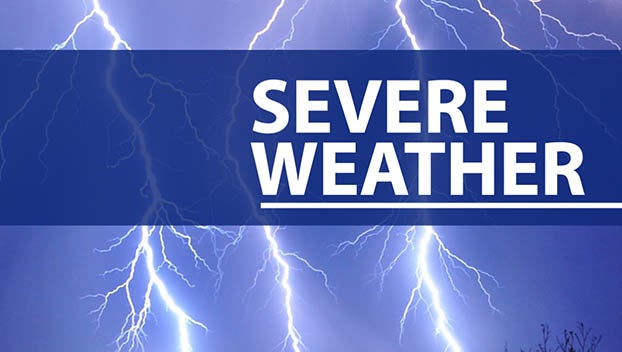Today is May 9, 2021
Published 7:00 am Sunday, May 9, 2021
Police Week
How to support local police
Local and national law enforcement officers across various disciplines put their lives on the line to keep others safe. Police make many sacrifices, often putting their physical and mental well-being on the line to protect and serve.
The National Law Enforcement Officers Memorial Fund says there are more than 900,000 sworn law enforcement officers now serving in the United States. Since the first recorded police death in 1786, more than 21,000 law enforcement officers have been killed in the line of duty. A Statistics Canada study released in 2010 found that, with the exception of taxi drivers, police are the most likely Canadians to die on the job.
Unfortunately, hateful and violent crimes against police continue to make the news. In recent years, a California University student painted cops as pigs for an art project, while an Atlanta gym and a Brooklyn doughnut shop refused to serve police. As recently as January of 2020, anti-cop protesters vandalized New York City subways and elsewhere to bring attention to supposed over-policing.
Communities can turn the tides and help the world focus on all the ways individuals can support and thank law enforcement. Here are some ways to give back.
- Stand outside a local police department or courthouse and say “Thank you” or “I appreciate your work” to any law enforcement agents you come across.
- Wear blue in solidarity with police.
- Campaign for local commemoration of Tuesday Blue’s Day, which encourages people to wear blue on Tuesdays in support of police officers.
- Become a citizen volunteer to help supplement and support officers in many ways, such as clerical tasks, assisting with search and rescue, writing parking citations, and providing additional patrol and visibility to neighborhoods.
- Serve on a citizen advisory board to help implement effective crime reduction strategies, advises the International Association of Chiefs of Police.
- Assemble gift baskets (with school children, if desired) and deliver them to your local police department. Items to include are gift cards to nearby coffee shops, gyms, restaurants, and more.
- Local businesses can be supportive of law enforcement by offering a daily discount with proof of ID or setting aside a day of the week for a police discount.
Police can use community support and gratitude to help them feel appreciated as they work one of the toughest jobs around.
**
National Woman’s Health Week
Vitamins and supplements women need
A balanced diet does more than provide sustenance and fuel for daily life. Eating an array of healthy foods gives people the best opportunity to naturally obtain the vitamins and minerals needed for optimal health. But certain nutrients may be lacking even when a diet includes an assortment of colorful produce and a careful mix of proteins, carbohydrates and fats. The right supplements can help overcome such deficits, and women often need different supplementation than their male counterparts.
Vitamins geared toward women are not just a marketing ploy; most contain formulations that cater to women’s unique needs at various stages in life. The Office on Women’s Health and WebMD recommends these vitamins for women to maintain good health.
Vitamin D
The Cleveland Clinic reports that 42 percent of Americans are vitamin D deficient. Vitamin D comes from diet but also is produced in the skin when the body is exposed to sunlight. Vitamin D helps the body absorb and maintain adequate levels of calcium and phosphate, which are essential to bone health. Rush University Medical Center says recent research suggests vitamin D may help guard against severe COVID-19 infections. Some populations have higher levels of vitamin D deficiency, particularly people of color, those with inflammatory bowel diseases and postmenopausal women.
Folic acid
Folic acid or folate (also known as vitamin B9) helps the body make blood cells and the DNA for new cells. This B vitamin also is key to preventing birth defects like spina bifida. According to the March of Dimes, one in two pregnancies are unplanned, and adequate folic acid is required at the early stages of gestation to help the fetus develop healthfully. All women who are sexually active are advised to take a multivitamin that contains folic acid in concentrations of 400-800 mcg. In addition, folate can be found in dark, green, leafy vegetables, nuts, beans, and cereals with added folic acid.
Vitamin B12
Vitamin B12 comes mostly from animal products. Therefore, anyone who follows a vegetarian or vegan diet may need supplementation to ensure they are getting enough B12. Pregnant women will find B12 is important for baby’s development. Without it, the infant may have low birth weight or other health problems, advises the OWH. Vitamin B12 also helps produce healthy red blood cells, may support bone health, could reduce risk of macular degeneration, and may reduce symptoms of depression. After age 50, women’s bodies cannot absorb vitamin B12 as readily, so supplementing or eating fortified foods can help.
Calcium
Growing girls need 1,300 mg of calcium each day to develop strong bones for adulthood. After menopause, women may need nearly the same dosage (1,200 mg) to help slow the bone loss that comes with aging. Calcium is found in low-fat dairy products and foods with calcium added.
Healthy eating may be a goal, but the U.S. Food and Drug Administration notes that 99 out of 100 Americans don’t meet even minimum standards of a balanced diet. Supplementation can help meet those standards and ensure a long, healthy life




